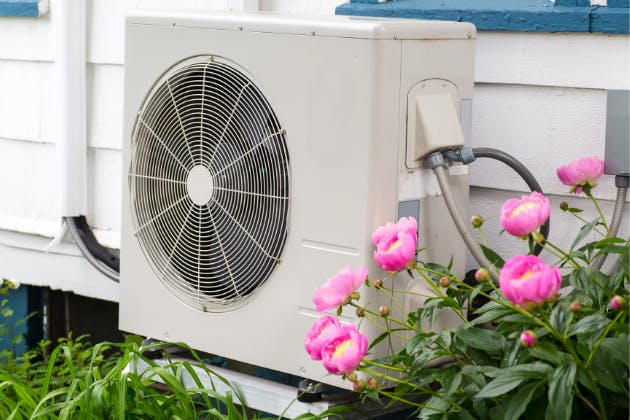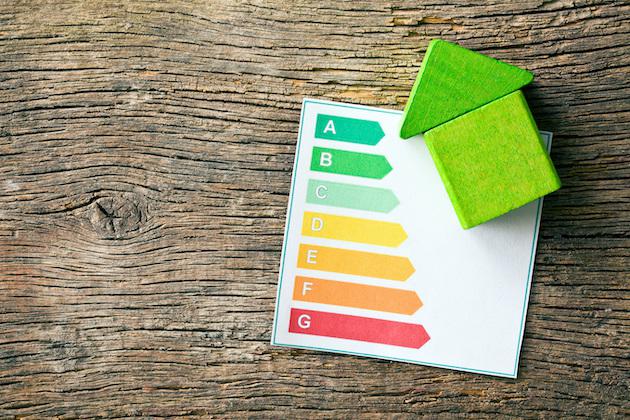Whilst there are a couple of different kinds of heat pumps; air-to-air heat pumps, ground source heat pumps and water-to-air heat pumps, we're not here to discuss their differences and which one is suitable for whom.
Instead, we go through their benefits and why you should consider installing one in your home or business.
Why is Heat Pump Installation Important?
Installation of heat pumps is essential for several reasons. First of all, heat pumps are low-energy systems that lower carbon emissions and energy costs. Their potential to save energy is maximised by proper installation. Second, it stays consistently comfortable all year long. Last but not least, expert installation guarantees system dependability and safety, lowering malfunctions and repairs. In summary, it is essential for system longevity, comfort, and efficiency.
More: Air Source vs Ground Source Heat Pumps

Benefits of Heat Pump Installations
Here are the benefits of installing heat pumps...
Lower running costs
Heat pumps are considerably cheaper to run than traditional combustion heating systems.
And whilst ground source heat pumps can be especially expensive to install (in some cases they can go up to £20,000 depending on the size of the install), you can expect to save around £100 every month compared to if you were using a traditional heating system.
Heat pumps require less maintenance
You're expected to service your boiler every year to ensure it remains in tip-top condition.
And whilst you should clean your heat pump at least once every 12 months and check over a couple of the major components, you needn't necessarily book a full service. You can expect to need to service your heat pump every 3 to 5 years.
Provide cooling in the summer
Heat pumps aren't just great for warming your home in the winter, they can also reverse the process and work as an air conditioning unit to help make your room cooler.
Heat pumps are safer
Short and sweet, heat pumps are safer than traditional gas, LPG or oil-fired boilers because they use renewable energy and not fossil fuels.
Heat pumps are better for the environment
Similar to the point above, heat pumps are much healthier for the environment because they're a form of renewable energy and do not heavily rely on fossil fuels to work.
More: Heat Pumps: The Ultimate Guide
Choosing the Right Heat Pump for Your Home
To help you make an informed choice, here are five essential factors to consider when choosing the right heat pump for your home:
Type of Heat Pump
Heat pumps can be classified into three main categories: ductless mini-split, ground-source (geothermal), and air-source. Making the best decision starts with knowing the differences and which one best fits your needs.
Size and Capacity
Your heat pump's size should correspond to the amount of heating and cooling that your house needs. It's important to get this right because an oversized or undersized unit can cause inefficiency and discomfort.
Energy Efficiency
Seek out heat pumps with high ratings for the Heating Seasonal Performance Factor (HSPF) and Seasonal Energy Efficiency Ratio (SEEER). These show you how effectively the heat pump works and help you save money on energy.
Climate Considerations
The ideal heat pump for your house depends largely on the climate where you live. It's critical to select a model that corresponds with the weather in your area because certain models are more appropriate for extremely cold or hot climates.
Budget and Long-Term Savings
Although a heat pump's initial cost is significant, it's also critical to take into account the potential long-term savings. Although a more energy-efficient unit may cost more upfront, you may save money on energy costs over the unit's lifetime.
More: How Air Source Heat Pumps Impact Your Bills

Is Heat Pump Energy Efficient?
Heat pumps are well-known for their high energy efficiency. They are an extremely effective way to heat and cool homes because they function by moving heat from one location to another as opposed to producing heat. Higher ratings denote greater efficiency. A heat pump's efficiency is commonly assessed using its SEER (Seasonal Energy Efficiency Ratio) and HSPF (Heating Seasonal Performance Factor) ratings. Heat pumps can be an economical and environmentally responsible option because they can effectively heat and cool homes while consuming a lot less energy and resulting in lower utility bills.
More: Enhance Your Home With Heat Pump Installers
Are you looking for an engineer to install a heat pump?
If you're looking for an engineer to install a heat pump in your home, get in touch with us at Green and Reliable Heating.
We're more than happy to come out and undertake a full survey so we can find the best heat pump system for you and your home.
Give us a call at 08001182467 or 07717574470 or send us a message using our website's contact form. We look forward to hearing from you soon.
Check out our gallery page to see the work we've completed for past clients. Visit our reviews page to read the testimonials that our clients have left.


